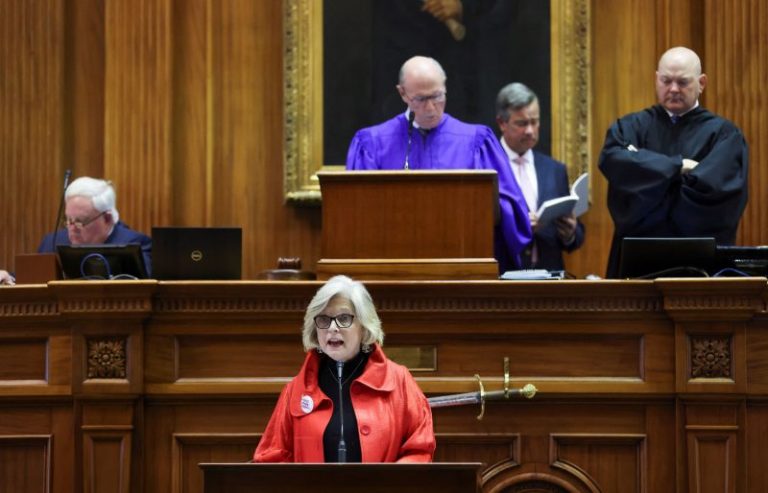A South Carolina judge on Friday moved to pause the state’s six-week abortion ban until it can be reviewed by the state Supreme Court.
Judge Clifton Newman of the South Carolina Circuit Court granted a temporary injunction Friday morning, barely 24 hours after Gov. Henry McMaster (R) signed the measure into law.
Planned Parenthood South Atlantic, along with a South Carolina clinic and two of its doctors, immediately filed a lawsuit Thursday to block the ban that took immediate effect with McMaster’s signature.
Friday’s injunction means abortion access in South Carolina reverts back to being legal up to 22 weeks of pregnancy.
“The status quo should be maintained until the Supreme Court reviews its decision,” Newman said, according to the Associated Press. “It’s going to end up there.”
Planned Parenthood called the injunction a “welcome reprieve.”
“While we have a long fight ahead, we will not stop until our patients are again free to make their own decisions about their bodies and futures,” Jenny Black, president and CEO of Planned Parenthood South Atlantic, said in a statement.
Abortion access by state
End of carousel
Shortly after news of the injunction, McMaster vowed in a statement to continue fighting for the law and said he hopes the Supreme Court “will take this matter up without delay.”
In a Thursday news release, McMaster said the state was “ready to defend this legislation against any challenges and are confident we will succeed.”
“The right to life must be preserved, and we will do everything we can to protect it,” McMaster said in the release.
The law, which the Republican-led South Carolina Senate passed by a vote of 27-19 on Tuesday, includes exceptions for the patient’s life and health, and for fatal fetal anomalies. It also permits abortion at up to 12 weeks in the case of rape or incest. Doctors who violate it would lose their license and face potential civil lawsuits, felony charges, a fine of up to $10,000 and two years in jail.
The bill is the state’s second recent six-week abortion ban. The first, which passed in 2021, was blocked under federal law but later took effect after the U.S. Supreme Court in June struck down federal abortion protections from Roe v. Wade. That six-week ban was in effect barely a month and a half before the state Supreme Court temporarily blocked it. In January, the high court struck down the law, calling it “an unreasonable restriction upon a woman’s right to privacy.”
But the makeup of South Carolina’s Supreme Court has changed since it last reviewed a six-week abortion ban. In January, the court had a single female justice, Kaye Hearn, who wrote the lead opinion striking down the ban from 2021. It was Hearn’s last opinion from the bench before she hit the mandatory retirement age weeks later.
South Carolina is one of two states (the other is Virginia) where the legislature selects Supreme Court justices. Earlier this year, the legislature selected Republican Gary Hill as Hearn’s replacement, making the state’s highest court entirely male.
Sandy Senn, one of five women in the state Senate, was among the few Republicans to oppose the six-week ban. She previously told The Washington Post that it would alienate more moderate voters and criticized the measure as an example of the overwhelmingly male Senate exerting control over women. In a text message Friday, Senn said she expected the quick injunction but was less optimistic about what the state Supreme Court will do.
“As far as the Supreme Court’s ultimate ruling, given that we have now reverted to the only state in the nation with an all-male high bench the outcome is anybody’s guess,” Senn said. “Ultimately, the federal government needs to step in to ensure uniformity for women nationwide.”
It’s unclear whether the state’s high court will again find privacy rights a compelling reason to strike the current six-week abortion ban. Senn said that regardless of whatever legal theory the court may use, South Carolina voters strongly favor abortion access — mostly at the first trimester — a fact she said the “overwhelmingly White male legislators in the chamber” are aware of.
That is why she says they refuse to put the issue to voters.
“They know what the outcome would be; they cannot control the voters in the same way they wish to control women, so they voted against the many polls that have been conducted including their own poll of Republican voters,” Senn said. “They think they know better than their own electorate.”
Molly Hennessy-Fiske and Rachel Roubein contributed to this report.

